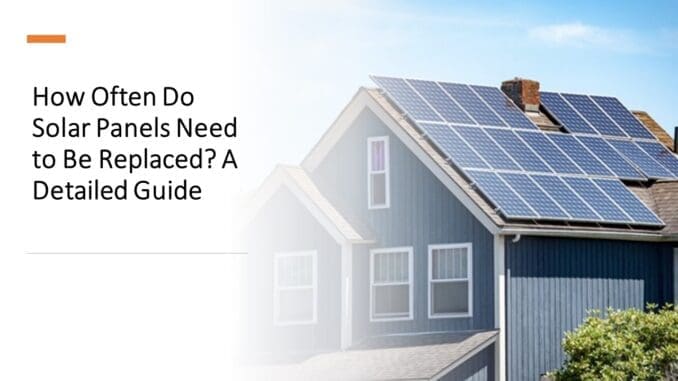
Have you been wondering if your solar panels need replacement?
It’s an important question to have an answer to. After all, knowing you have the latest solar panel technology could just be the thing that helps you reduce energy bills.
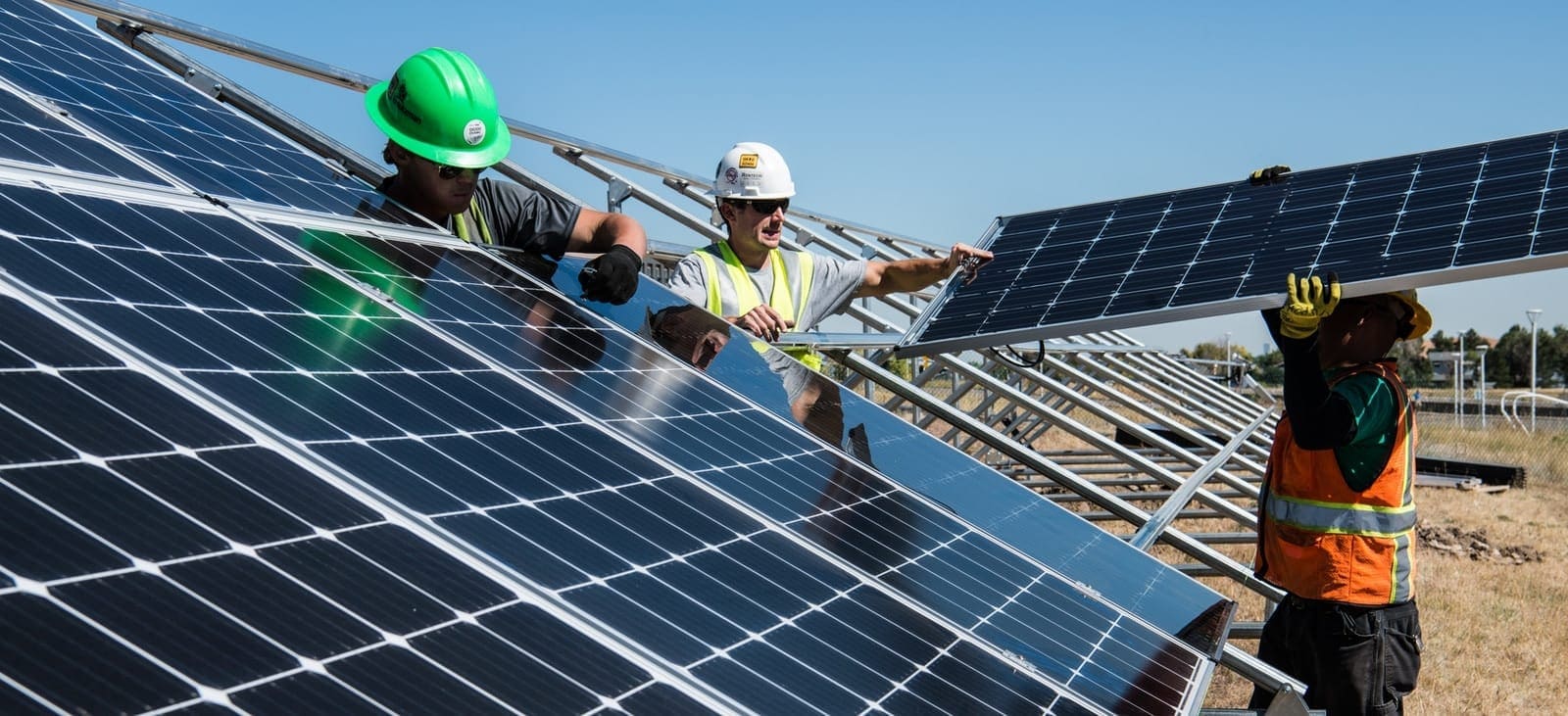
Replacing your solar panels can be expensive. But if you first replace them with a newer model, the new solar panels will prove a big money saver throughout their life span.
So, how often do solar panels need to be replaced? Read on as we go over this in detail.
Solar Panel Lifespan Explained
Solar panels are primarily designed to last for a long time, but like all things, they don’t last forever. On average, solar panels can last for about 25 to 30 years. That’s like having free electricity for decades!
Over time, solar panels slowly lose their ability to generate as much electricity as they did when they were brand new. This happens because the materials inside them wear out. But don’t worry, it’s a slow process.
If you take good care of your solar panels and protect them from harsh weather, they can last longer than 30 years. So, it’s like caring for a car – regular maintenance can make a big difference.
Factors Affecting Solar Panel Longevity
Several things can influence how long your solar panels will last. Let’s break them down below.
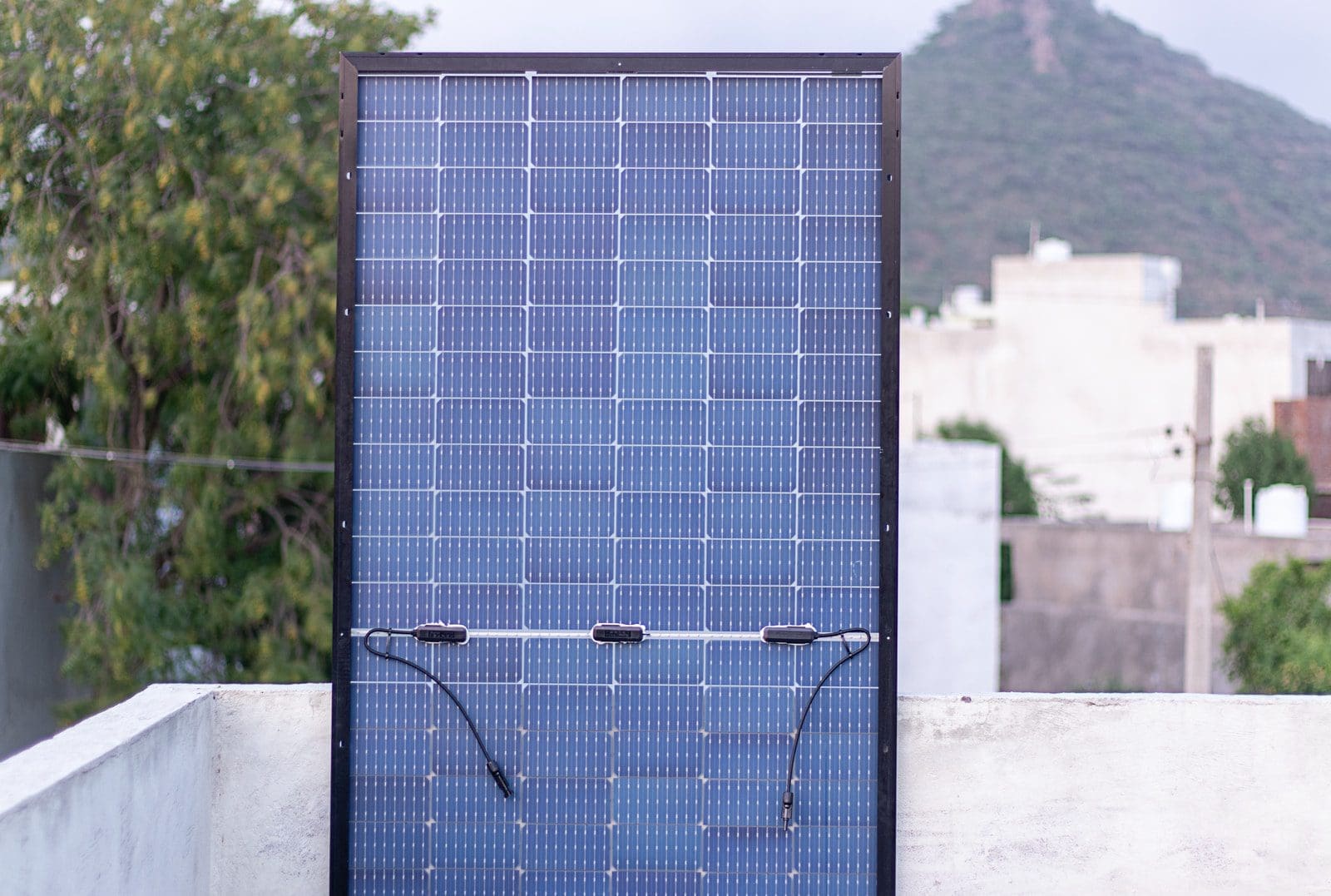
Quality Matters
The quality of the roof solar panels you choose matters a lot. High-quality panels tend to last longer because they are typically built with durable materials. It’s like buying a good pair of shoes that lasts longer than cheaper ones.
Weather Conditions
Where you live plays a role, too. If you’re in a place with lots of sunshine and mild weather, your panels will likely last longer. On the flip side, extreme conditions can wear out your panels faster if you’re in a very hot or cold area.
Maintenance and Cleaning
Just like your car needs an occasional wash and tune-up, solar panels need some care, too. Regularly cleaning them and checking for any damage can help extend their life.
Remember, it’s not rocket science. Quality panels, good weather, and a bit of TLC can keep your solar panels producing clean energy for many years.
When to Replace Solar Panels
So, when should you think about replacing your solar panels? It’s not like changing a lightbulb, but there are some signs to watch out for.
First up, consider their age. If your panels are over 25-30 years old, it might be time to start thinking about a replacement. They might not be as efficient as they used to be.
Also, if your panels start looking beat-up or cracked, that’s a clear sign they need some love. Broken panels can’t function as well as they used to. This can end up costing you more money the longer you wait.
Lastly, if your energy bills start climbing even though your panels seem okay, it could be a sign that they’re losing their mojo. Newer panels are more efficient and might be a better choice.
Remember, solar panels are a long-term investment. So don’t rush into replacing them. Keep an eye on their condition, and when it’s time, you’ll know.
Extending Solar Panel Lifespan
You don’t need to be an expert to make your solar panels last longer. Simple steps can help you get more out of your investment.
Regular Cleaning
Think of your solar panels like windows. When they’re dirty, they can’t let the sunlight in. A gentle wash from time to time with soapy water and a soft brush can keep them shining bright.
Shade Management
Monitor any trees or structures that might cast shadows on your panels. Shade can lower their efficiency. Trim tree branches or consider adjusting the placement of your panels.
Check for Damage
Every so often, inspect your panels for cracks or signs of wear. If you notice any issues, it’s a good idea to get them fixed promptly.
By following these simple tips, you can help ensure your solar panels continue to generate clean energy for many years. This will save you money and help the environment.
Cost Considerations for Replacement
Are you thinking about replacing your solar panels? If so, it’s essential to weigh the costs involved. Below are some considerations that you should keep in mind.
Getting Multiple Quotes
Start by getting solar panel installation quotes from reputable installers. They can provide estimates based on your specific needs and location.
Remember that prices from different installers may vary. This is why it’s a good idea to compare multiple quotes. You can click for more on solar installation costs and find the right provider for your location.
Incentives and Rebates
Consider any incentives or rebates available in your area. Some governments offer financial incentives. This encourages the adoption of renewable energy, which can help offset the cost of new panels.
Long-Term Savings
Finally, think about the long-term savings that you’ll have. Replacing your panels may need a costly initial investment. Keep in mind, though, that the improved efficiency of newer panels can lead to lower electricity bills over time.
This means that it’s not just about the upfront cost. It’s also the potential savings down the road.
So carefully consider the costs and potential savings. By doing so, you can decide whether replacing your solar panels is the right choice for you.
How Often Do Solar Panels Need to Be Replaced
Solar panels are an investment that can pay off greatly. With the proper maintenance and upkeep, they can last for decades. So, how often do solar panels need to be replaced?
This depends largely on your commitment to upkeep and maintenance. But, a general rule of thumb is to plan to replace them every twenty to thirty years. To be safe, be sure to contact a professional and ask any questions you might have.
In addition to understanding the lifespan of solar panels, it’s crucial to stay informed about the latest advancements and maintenance tips. For those looking to explore more about solar energy solutions and innovations, you can discover a wealth of information and resources that can help optimize your solar panel system’s performance.
Staying updated with the latest trends and technologies ensures that your investment remains efficient and effective over the years, providing sustainable energy and cost savings. Regular maintenance and timely upgrades can significantly extend the life of your solar panels, making them a more valuable asset in the long run.
Explore our site for more informative articles about this and other related topics!

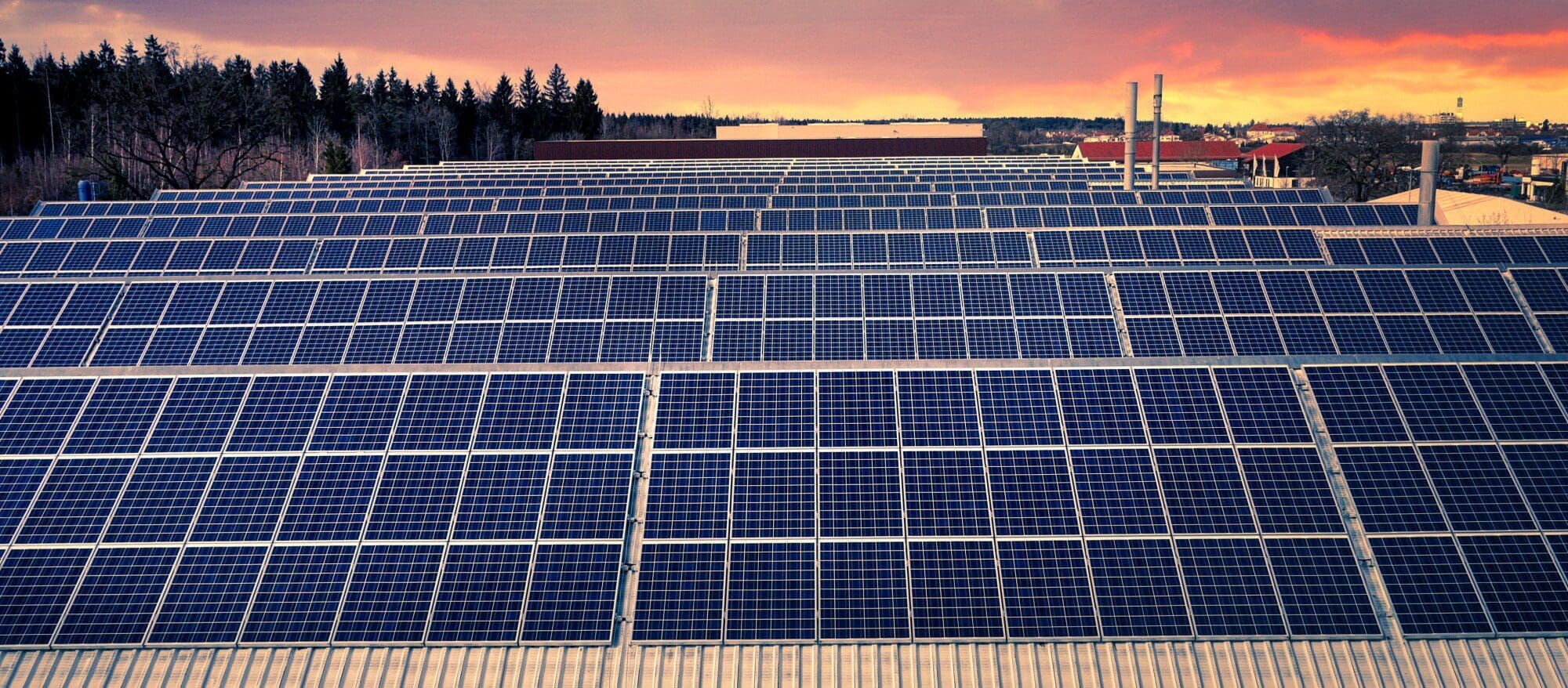
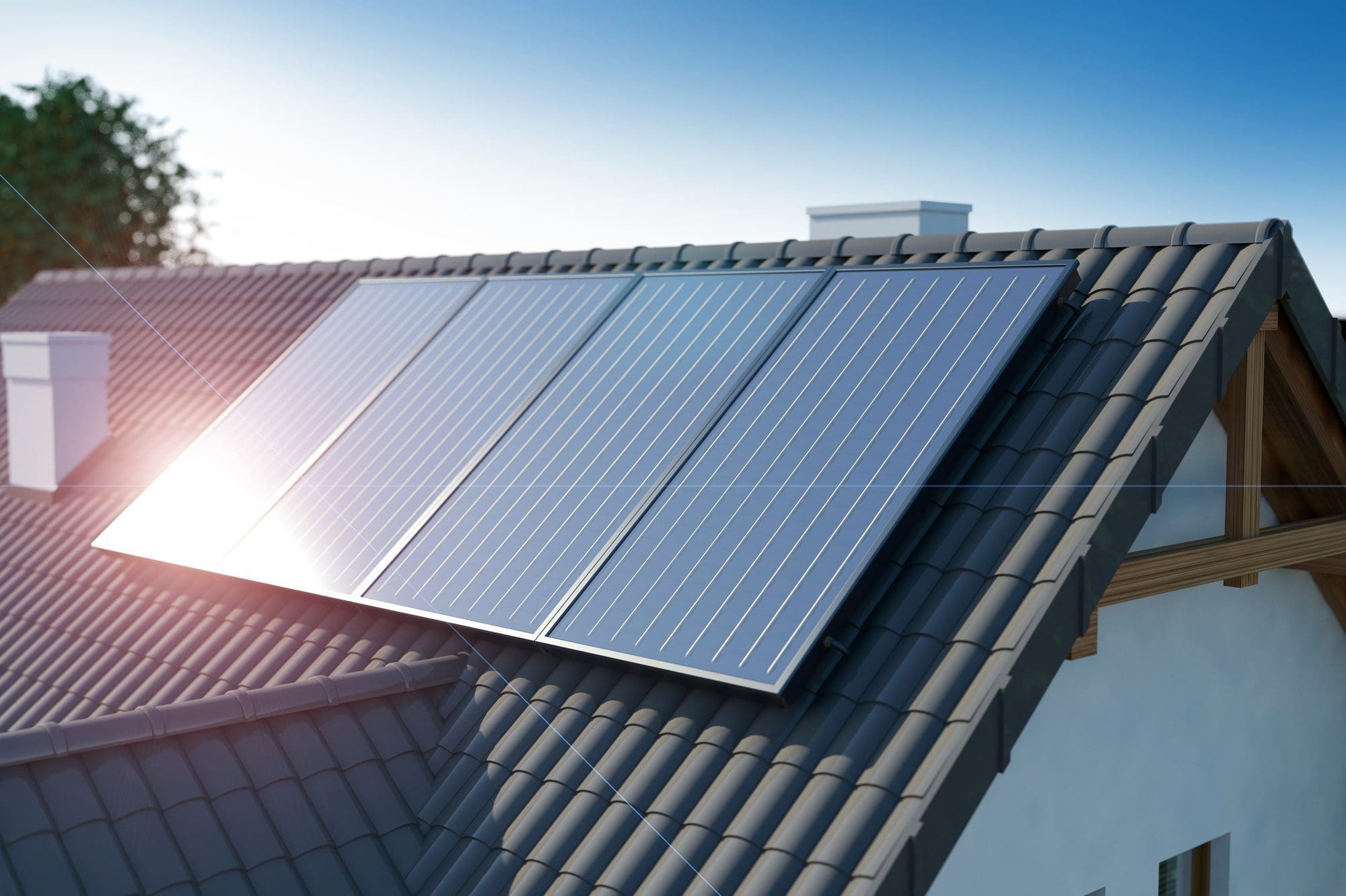

Be the first to comment